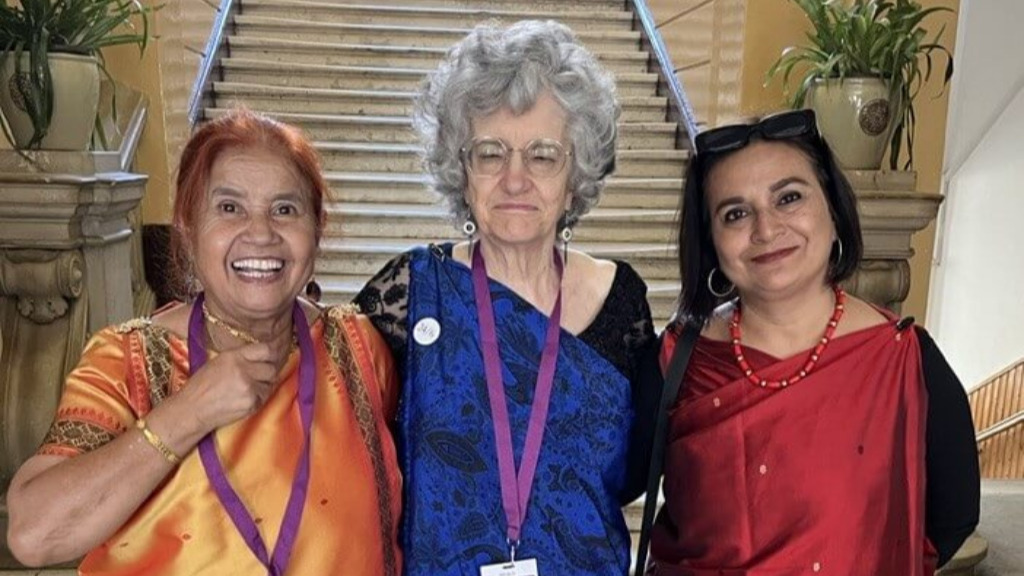Colourful Hungarian traditional costumes; pride in handicrafts and cultural roots; deepening understanding of Unitarian history in Transylvania (a part of Romania that was Hungarian before WWI); radical Hungarian hospitality; greeting Unitarian friends from distant countries; meeting people I’d only ever seen on Zoom; finding sisters in unexpected places; sharing stories; soaking up the wisdom of so many impressive women – these were just a few of the inspiring moments at the 4th International Convocation of Unitarian Universalist Women held in Cluj-Napoca (Kolozsvár in Hungarian) in Romania 5th-8th September, 2024.
Approximately 150 Unitarian and Universalist women (and several men) from all around the world joined together for an enriching time of personal, cultural and faith connections. Half the participants came from Hungary and Romania and half from 14 different countries including the US, Canada, Australia, Brazil, Denmark, Germany, Greece, India, Japan, Kenya, Poland and the UK. Visa difficulties prevented others from Bolivia and the Philippines from attending. Simultaneous translation between Hungarian and English was provided.
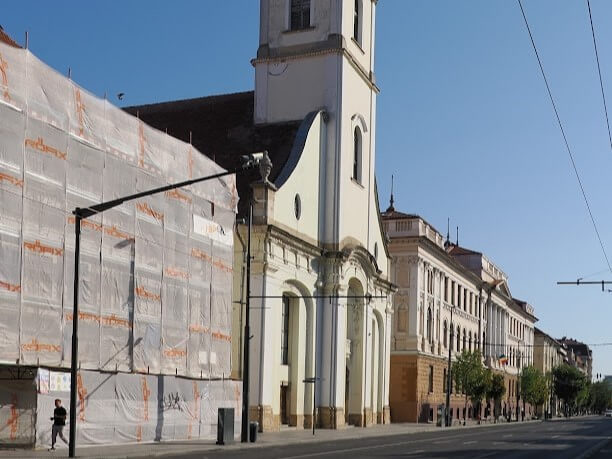
On Saturday, the 7th of September, an additional 200 Hungarian women resplendent in traditional costumes, some bearing embroidered banners representing their various Unitarian women’s groups, processed into the First Unitarian Church of Kolozsvár for their annual meeting and the conference of their women’s association (held in Hungarian). Seeing so many women representing so many different Unitarian churches was a clear visual reminder that there are approximately 60,000 Unitarians in this part of the world.
This was the fourth convocation held in the 15-year history of ICUUW. It was organized by ICUUW and the National Organization of Unitarian Women of Romania (UNOSZ), in partnership with the Hungarian Unitarian Church (HUC), who hosted us in their church and college buildings.
The convocation theme Weaving a Tapestry of Peace and New Perspectives: Connect - Collaborate - Create was explored in a range of presentations and workshops.
Weaving a Tapestry
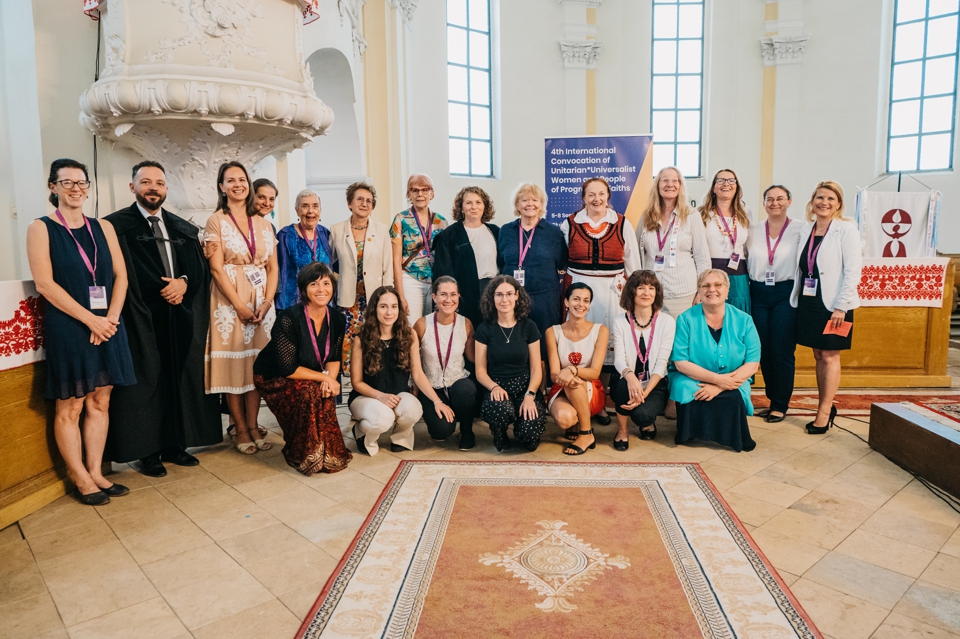
Unitarian and educational anthropologist Maureen Porter’s keynote presentation skillfully addressed all these strands through the metaphor of weaving on a loom. She drew among other things on her experience helping to build a three-classroom school in Peru with her students. She said projects and life activities needed to be framed by goals, strong support and a baseline, much like a piece of tapestry being created on a loom. Endurance and guiding cords with just the right amount of tension and flex are necessary for the tapestry to grow. A row cannot be left hanging (we need to cling tight to people around us and lean on each other); but neither does it have to be perfect. We follow up, tie off the loose threads but sometimes just holding together is good.
She emphasized the need for collaboration. We need one another in the hour of defeat and/or despair; we need one another to accomplish great goals; all our lives we are in need of others and others are in need of us.
Peace
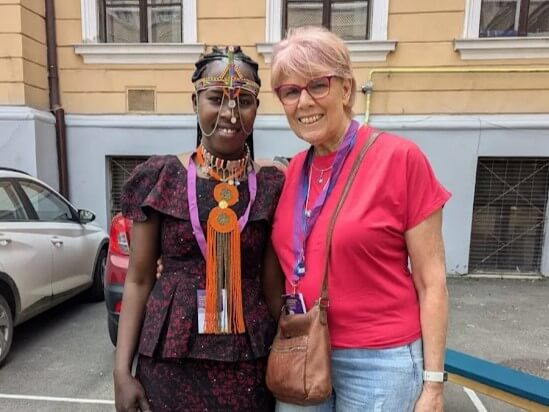 She also expressed a new (to me) perspective on peace: Peace is conflict done well, not the absence of conflict. We need creative alternatives for responding to conflict.
She also expressed a new (to me) perspective on peace: Peace is conflict done well, not the absence of conflict. We need creative alternatives for responding to conflict.
In a morning worship, Rev. Addae Kraba (US) reminded us of the need to develop peace in ourselves and for a shift in consciousness away from the idea and habit of war. She said we have to be peace and show less suspicion, hostility and hatred and to stop dehumanising the other. She urged us to take with us the three spirits of peace, hope and love.
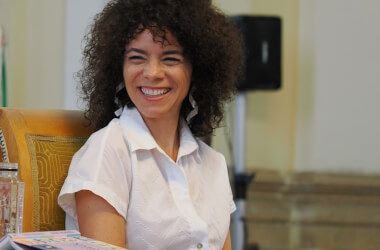 Former war journalist Hungarian Dr Hesna Al Ghaoui spoke of resilience and facing fear and anxiety in the aftermath of witnessing the trauma of war. For Romanians and Hungarians, the Ukrainian war is literally next door, a fact that made these presentations powerful and poignant.
Former war journalist Hungarian Dr Hesna Al Ghaoui spoke of resilience and facing fear and anxiety in the aftermath of witnessing the trauma of war. For Romanians and Hungarians, the Ukrainian war is literally next door, a fact that made these presentations powerful and poignant.
Radical Hospitality
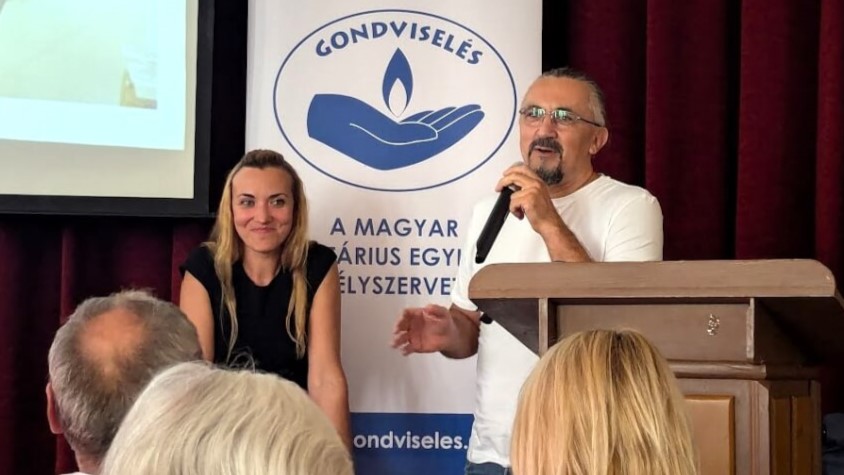 A panel of speakers from Gondviselés (Providence – the social justice group of the HUC) described how the college staff, the HUC and Gondviselés worked together to mount a huge response to support Ukrainian refugees in Kolozsvár and in Ukraine. The first refugees (Vladimir and Yulia Skalski) to stay in the college dormitory are now an integral part of the Gondviselés team. Vladimir has driven most of the 19 aid shipments into Ukraine and Transcarpathia, sometimes making a very dangerous journey to southern Ukraine to deliver specific items.
A panel of speakers from Gondviselés (Providence – the social justice group of the HUC) described how the college staff, the HUC and Gondviselés worked together to mount a huge response to support Ukrainian refugees in Kolozsvár and in Ukraine. The first refugees (Vladimir and Yulia Skalski) to stay in the college dormitory are now an integral part of the Gondviselés team. Vladimir has driven most of the 19 aid shipments into Ukraine and Transcarpathia, sometimes making a very dangerous journey to southern Ukraine to deliver specific items.
Gondviselés is indeed an inspiring example of radical hospitality. Strangers in need are welcomed and supported, not only in aid to displaced Ukrainians but also to families, aged, disabled and homeless people in the community. They accomplish this with only five staff and 200 volunteers.
Connection Collaboration
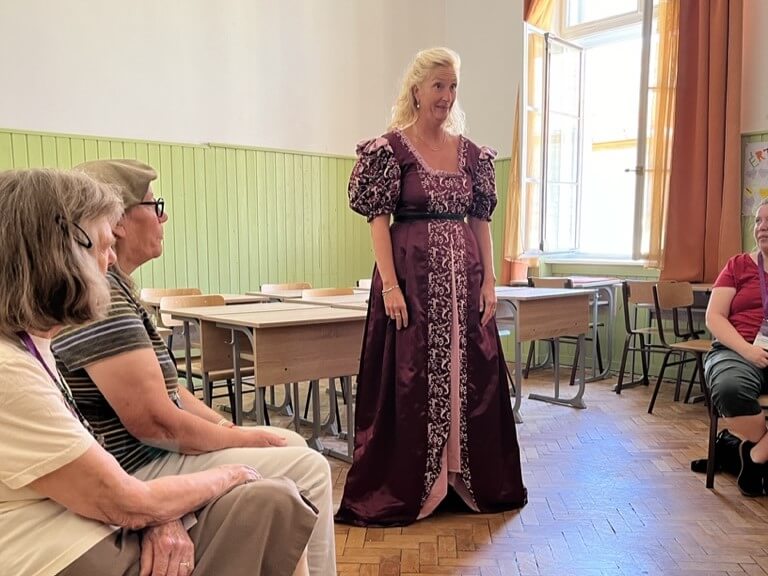 For me though, the real magic of the convocation happened in the Chalice Circles and the Global Sisters Conversations. These small group discussions allowed deeper connections and the sharing of stories that we were encouraged to do in the opening ceremony. ICUUW president Tina Huesing urged us then to get to know each other just as women, not as a country, not as a culture or an age group. And connect we did!
For me though, the real magic of the convocation happened in the Chalice Circles and the Global Sisters Conversations. These small group discussions allowed deeper connections and the sharing of stories that we were encouraged to do in the opening ceremony. ICUUW president Tina Huesing urged us then to get to know each other just as women, not as a country, not as a culture or an age group. And connect we did!
Men attending the conference had their own Chalice Circle, sometimes attended by the Hungarian Unitarian Church bishop István Kovacs, who explained why he is called a bishop. (The position used to be called overseer, but the government said that didn’t sound like a religion!) The HUC provides schools and Unitarian teachers with the aid of the Romanian government.
The connections and relationships formed at the convocation have enriched me personally and are already influencing my perspective and actions as a Unitarian. The atmosphere of joy in connecting with Unitarians from all over the world was similar to what I first experienced at the 2012 International Council of Unitarian-Universalists (ICUU) conference in the Philippines.
ICUUW is to be congratulated for creating such a memorable event.
